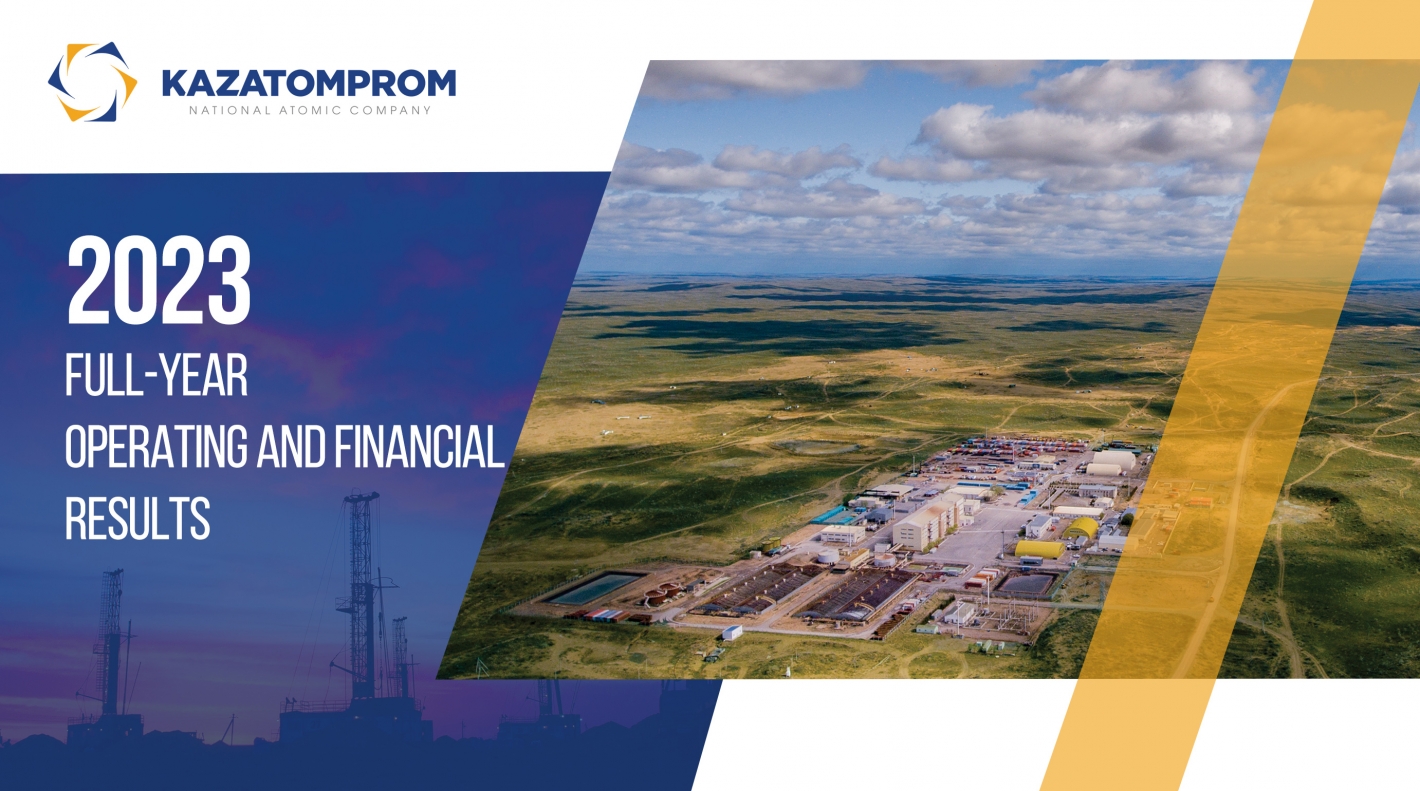ASTANA – Kazatompom national atomic company showcased exceptional financial resilience in 2023, driven by its strategic market positioning and robust operational efficiency, the company’s press service reported on March 15, summing up last year’s consolidated financial results.

Photo credit: Kazatompom.
Despite a modest year-on-year increase of slightly over 20% in the average annual uranium price, the company witnessed significant revenue growth of 43%, totaling 1.4 trillion tenge ($3.1 billion). Both gross and operating profits saw nearly a 50% year-on-year increase.
In 2023, Kazatompom developed a Sustainable Development Program for 2023-2030, encompassing key goals, objectives and specific targets grouped into three components – Environmental, Social, and Corporate Governance (ESG).
To reinforce the implementation of ESG principles and apply the best global sustainable development practices, the company executed activities outlined in the 2023-2024 ESG Roadmap.
Kazatomprom approved the Radioactive Waste Management Program for 2023-2030 and the Water Resources Management Strategy for the same period, underlining its commitment to the rational and careful use of water in the production processes and operations.
Prioritizing independent ESG ratings and scores, the company disclosed data on Climate Change for the first time as part of the Carbon Disclosure Project climate score. By achieving a B (management), Kazatomprom surpassed the industry and regional averages, demonstrating its efforts to reduce and prevent negative environmental impacts through its Decarbonisation Strategy aimed at achieving carbon neutrality by 2060.
Kazatomprom prepared its inaugural Progress Report to the United Nations (UN) Global Compact and joined the UN Global Compact Sustainable Development Goals Ambition Program to support the global sustainable development development agenda.
Kazatomprom maintained a strong production volume of uranium, totaling 21,112 tons on a 100% basis in 2023. For 2024, production is expected to range between 21,000 and 22,500 tonnes on a 100% basis and 10,900 to 11,900 tonnes on an attributable basis.
